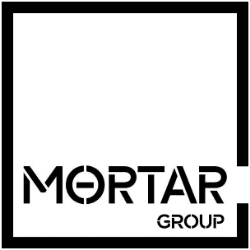
Anybody can invest in stocks, bonds, and mutual funds, but there’s a whole range of assets that are off-limits to everyday investors—startups, certain real estate ventures, private equity and venture capital funds, to name just a few. These are private market investments.
You must be an accredited investor to put your money in unregulated or private investments. Being an accredited investor means you have either the money or the know-how to cope with the greater risks involved. When it comes to private investment opportunities, the Securities and Exchange Commission (SEC) imposes restrictions on who can invest due to the high level of risk and speculation.
Without private markets, investors placing money in a portfolio with 60% equities and 40% bonds has long been the easy choice. But when the traditional markets are in decline, or the expected real return of a 60/40 portfolio is below the cost of inflation – it may be time to think about updating the strategy.
Diversification is one of the most important aspects of investing. Having assets that may perform more independently of each other can help grow capital and mitigate losses. Adding private markets to your portfolio can help boost returns, generate income and diversify from traditional investments.
What Exactly is an Accredited Investor?
Like we described earlier – an accredited investor is a person that meets certain requirements the US government declares are required to purchase private investments, which are reserved for sophisticated investors. The requirements to become an accredited investor can be met through one’s income, net worth, or line of work. These requirements help the SEC determine who might have a deep enough understanding of financial and investment matters to make rational decisions, especially in the case of high-risk investments.
If I Don’t Want to Be Accredited – Can I still Invest?
Yes – but not in private market investments. Any publicly traded stock, bond, mutual fund or publicly traded real estate investment trust, or REIT, is available to any adult who opens a brokerage account in firms like Vanguard or Fidelity. Many of these investments are also available within retirement accounts, like 401(k)s and individual retirement accounts.
How to Become an Accredited Investor?
To achieve accredited investor status and gain access to investment opportunities in unregistered securities and other similar investments, there are several requirements you can meet. It’s important to note that you don’t have to meet all of the accredited investor requirements—just one is sufficient.
Accredited investors must meet one of the following requirements:
- Have an earned income of at least $200,000 (or $300,000 joint income with a spouse) in the previous two years and reasonably expect to continue to maintain that income
- Have a net worth of at least $1 million alone or jointly with a spouse
- Hold a Series 7, 65, or 82 license in good standing
Under the latest definition of an accredited investor, you also qualify based on certain professional certifications, designations, credentials, or professions. For example, you can be considered an accredited investor if you’re employed by a private fund and are considered a knowledgeable employee of the fund. You may also qualify if you’re an SEC or state-registered investment advisor.
Because there’s no official accreditation process beyond meeting proving your income or net worth, you might already be an accredited investor without realizing it. If you’re debt-free and have considerable assets in your investment portfolio, then you may very well qualify.
What are Some Private Market Investment Opportunities
The benefit of becoming an accredited investor is that you have access to many investments that aren’t accessible to other investors. The reason the SEC requires someone to be an accredited investor to participate in these opportunities is that they require a certain amount of knowledge.
Suppose you had an investment opportunity in a startup through an investment fund or crowdfunding offering. These firms aren’t public, meaning they don’t have to meet the disclosure requirements of a public company. They are also high-risk and speculative investments since the companies haven’t proven themselves yet.
A few other investment vehicles available to accredited investors are:
- Unregistered securities (known as private placements)
- Hedge funds
- Private equity funds
- Venture capital
- Crowdfunding
- Private real estate investment funds
An individual investor who isn’t accredited may not fully grasp what they’re getting themselves into with these investments. They also may not understand the risks or liquidity restrictions when applicable. However, through the eyes of the SEC, an accredited investor is sophisticated enough to weigh the risk and benefits of investments, even if the company or fund isn’t required to make the same disclosures that a public company would have to.
How Do Firms Determine if You’re an Accredited Investor?
At this point, you might be wondering: If there’s no professional certification or other documentation to prove your accredited status, how do investment firms ensure you qualify? There are a few guidelines in place that companies can follow to verify an investor’s accreditation status.
First, the investment firm is likely to use either a third-party online accreditation process, or an internal screening procedure. These typically are a series of questions to help determine whether an investor meets the necessary requirements. The firm may also ask for certain documentation from the investor, including:
- Tax returns
- W-2 forms
- Bank and brokerage statements
- Credit report
- Professional certifications, designations, or credentials
Ultimately, the burden lies on the investment firm to ensure that its investors meet the accreditation requirements. They will likely ask for documents to prove your accredited status. Firms must adhere to the SEC regulations, as the firm usually takes the responsibility or liability if a non-accredited investor ends up investing in their offering.
To protect investor privacy, many firms like Mortar Group use Verify Investor, a third-party accreditation site that keeps all investor documentation confidential and secure.
At the End of the Day
Accredited Investor status is not for everyone – however, once you meet the requirements of an accredited investor, you’ll have access to a wider selection of investments. While these securities offer attractive benefits or higher returns, they are not without their risks and pitfalls. If these investments seem appealing to you, it could be wise to start slowly and only invest a small percentage of your overall portfolio.
More information on the SEC requirements are available here.
Disclaimer: The content presented is for informational purposes only and does not constitute financial, investment, tax, legal, or professional advice. If any securities were mentioned in the content, the author may hold positions in the mentioned securities. The content is provided ‘as is’ without any representations or warranties, express or implied.
Sources:
Investor Junkie Verify Investor KKR Insights: Global Macro Trends, 2022

